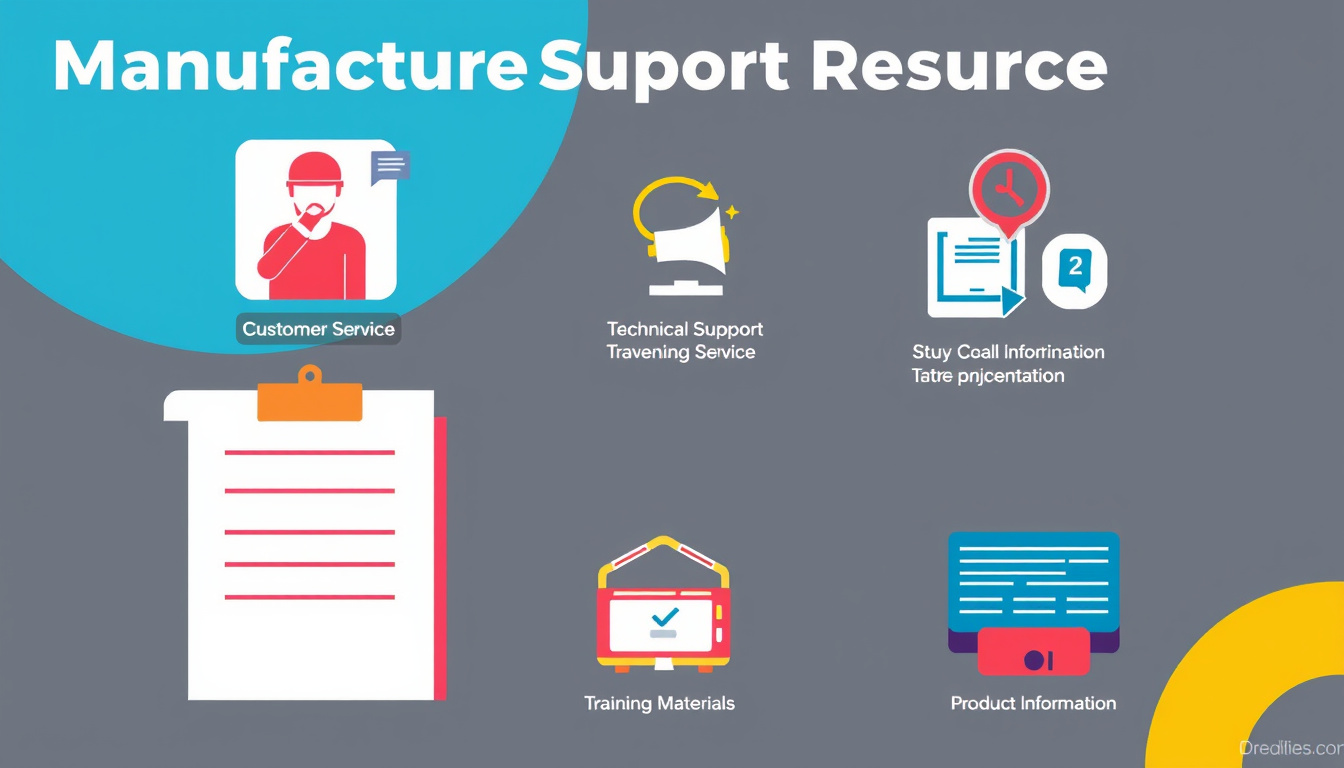In today’s competitive landscape, manufacturers face an array of challenges, from rising costs to the need for efficiency in production. To navigate these complexities, many are leveraging manufacturer support resources to enhance their operations. This guide explores what manufacturer support resources are, their benefits, and how businesses can effectively utilize them to achieve operational success.
What Are Manufacturer Support Resources?
Manufacturer support resources encompass a variety of services offered by specialized third-party providers aimed at improving efficiency, productivity, and overall supply chain management in manufacturing settings. Key services include logistics, sourcing, quality assurance, and technical support—each designed to streamline processes and mitigate operational challenges.

Core Components of Manufacturer Support Resources
-
Logistics and Supply Chain Management: Manufacturers often collaborate with third-party logistics (3PL) providers for efficient transportation, warehousing, and distribution. These providers assist with inventory management, help implement Just-in-Time (JIT) delivery systems, and optimize supply chain sustainability.
-
Quality Assurance and Compliance: Many firms prioritize partnerships with providers that maintain industry certifications, like ISO 9001:2015. This ensures that products and services meet high-quality standards, which is crucial in maintaining customer satisfaction and compliance with regulations.
-
Kitting and Assembly Services: Some providers specialize in value-added services such as kitting, where various components are assembled into ready-to-ship kits. This approach minimizes manufacturing time and reduces labor costs associated with assembly.
-
Process Optimization: Support resources also focus on identifying inefficiencies within current operations. Using technology such as advanced warehousing management systems, providers can enhance production throughput and decrease lead times.
-
Technology Integration: The adoption of cutting-edge technologies, including robotics and automation systems, can significantly boost productivity. Manufacturers can rely on support services to assist with the integration of these technologies into their existing workflows.
Benefits of Utilizing Manufacturer Support Resources
-
Enhanced Efficiency: By outsourcing specific functions, manufacturers can concentrate on their core competencies, leading to improved operational efficiency. This enables companies to adapt swiftly to market demands.
-
Cost Savings: Operating alongside a qualified support provider can help reduce overhead costs related to staffing, training, and maintaining equipment. This results in substantial savings over time.
-
Scalability: As business needs fluctuate, manufacturer support resources offer the flexibility to scale operations up or down without significant investments in facilities or labor.
-
Improved Focus: With the burden of logistics and operational intricacies offloaded, manufacturing leaders can devote more time to strategic initiatives and innovation.
-
Access to Expertise: Partnering with experienced support providers grants access to skilled professionals and advanced technologies that may not be available internally, fostering a culture of continuous improvement.
Finding the Right Manufacturer Support Partner
To harness the full potential of manufacturer support resources, businesses must carefully evaluate potential partners. Factors to consider include:
-
Industry Experience: Look for providers with proven expertise in your specific manufacturing sector, as they will understand unique challenges and dynamics.
-
Technological Capability: Ensure the provider has access to the latest manufacturing technologies and can implement them effectively within your operations.
-
Reputation for Quality: Research testimonials and case studies to gauge client satisfaction and the provider’s commitment to quality.
-
Customizability: The ability to tailor solutions to meet your specific business needs is crucial—ensure the provider is willing to adapt their services as your requirements evolve.
Conclusion
Incorporating manufacturer support resources into your operational strategy can unlock significant advantages, enabling manufacturers to thrive amid challenges. By leveraging specialized services, businesses can streamline processes, improve efficiency, and focus on innovation, all while achieving their strategic goals. As the manufacturing landscape continues to evolve, the right support can serve as a critical asset for long-term success.



